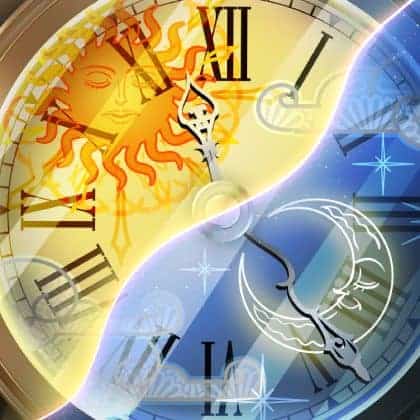Energize Your Soul: The Dynamic Power of Music
Last updated: May 24, 2024Author:
 | Lionel Thomas Father, Gamer and Founder with a Passion for Health, AI, Environment and Gamification of Life. |
Author Tools:
- ChatGPT (Content Enhancements & Research)
- Fliki (Audio by AI)
- Other Tools (AI)...
Artists:
References:
1. The Effect of Music on the Human Stress Response
National Library of Medicine (NIH)
https://www.ncbi.nlm.nih.gov/pmc/article...
Summary:
This study aimed to explore the impact of listening to music on the stress response, addressing gaps in existing research through a comprehensive examination of music's effects on endocrine, autonomic, cognitive, and emotional responses to stress. Sixty healthy female volunteers were exposed to a stress test after being randomly assigned to listen to relaxing music, the sound of rippling water, or rest without acoustic stimulation. Results showed significant differences in cortisol response, with the highest levels observed in the music group, suggesting that listening to music prior to stress may affect the autonomic nervous system by facilitating a faster recovery rather than significantly altering the endocrine or psychological stress response. This study contributes to understanding music's role in stress management, indicating that while music may not reduce the immediate stress response, it could aid in the recovery process of the autonomic nervous system.2. How Listening to Music Affects Your Mood
Psychology Today
https://www.psychologytoday.com/au/blog/...
Summary:
Music serves as a powerful tool for mood regulation, offering both a means of coping with stress and enhancing positive emotions. It can ease negative feelings, helping individuals to disengage from distressing situations by focusing on the beauty of music or finding resonance in lyrics that express unarticulated feelings. Music's ability to evoke nostalgia, connecting listeners to cherished memories of significant life events, further illustrates its emotional impact. Interestingly, even sad music has its rewards, as it can intensify feelings of sorrow yet also provide a biochemical comfort through the hormone prolactin, leading to a sense of calmness. The awe and admiration elicited by music can move listeners to tears, generating goosebumps and inspiring personal and societal improvement. Additionally, music alters our perception of time, making pleasant experiences seem to pass more quickly and transforming mundane or waiting periods into more enjoyable moments. Overall, music's influence extends beyond personal mood regulation to reflect and shape collective emotions, as seen in its role in national movements and protests.3. Individual brain-frequency responses to self-selected music
ScienceDirect
https://www.sciencedirect.com/science/ar...
Summary:
This study investigates the brain's response to music, focusing on individual preferences and their effect on alpha and beta brain oscillations. Eighteen participants were asked to bring their favorite relaxing and stimulating music, alongside a tactile stimulation condition to serve as a non-auditory control. The EEG results revealed significant responses mainly in the alpha range on parietal and occipital sites during music and tactile stimulation, with individual differences in response patterns. While most subjects exhibited an alpha desynchronization in the lower alpha range followed by synchronization in the upper alpha range, responses varied among individuals. Beta activity increased during stimulating music and tactile stimulation for most subjects. Despite the subjective emotional response to music being similar across participants, the study highlights significant interindividual differences in brain reactivity to music, suggesting that the impact of music on the brain is moderated by personal preference and should be examined on an individual basis.4. When classical music relaxes the brain: An experimental study using Ultrasound Brain Tissue Pulsatility Imaging
ScienceDirect
https://www.sciencedirect.com/science/ar...
Summary:
This experimental study explored the impact of classical music on Brain Tissue Pulsatility (BTP), a parameter potentially involved in emotional reactivity, using Ultrasound Tissue Pulsatility Imaging (TPI). Twenty-five healthy volunteers were exposed to both exciting and relaxing classical music excerpts, interspersed with silence, while measures of BTP, Heart Rate (HR), and Skin Conductance (SC) were recorded. The findings revealed a significant decrease in BTP, HR, and SC when subjects listened to relaxing music, particularly the piece ‘Entrance of the Shades’ by Minkus, indicating a general reduction in brain and autonomic nervous system arousal. No significant effects were observed with exciting music. This study not only provides evidence of the calming effect of classical music on the brain's mechanical properties and blood flow but also suggests the potential of TPI as a non-invasive, portable tool for psychophysiology research and music therapy, highlighting the importance of cerebral biomechanics in emotional processes.5. The healing power of music: Robin Spielberg at TEDxLancaster
TEDx Talks
https://www.youtube.com/watch?v=8LTusPwr...
Video6. Music, mental health, and immunity
PMC PubMed Central
https://www.ncbi.nlm.nih.gov/pmc/article...
Summary:
Music transcends mere entertainment, serving as a pivotal element across all cultures with the power to enhance physical and mental wellbeing through its influence on physiological processes. Scientific studies have demonstrated music's capacity to improve mental health in patients with disorders such as anxiety, depression, and schizophrenia, following music-based interventions. Moreover, music has shown benefits in improving heart rate, motor skills, brain stimulation, and boosting the immune system, positioning it as a cost-effective addition to conventional treatment regimens. Music therapy, a professional field that emerged post-World War II, utilizes music within a therapeutic relationship to achieve individualized goals, proving effective for individuals who struggle with verbal expression due to mental health difficulties. Beyond professional therapy, music's role in enhancing mood, cognition, behavior, and even immune system responses has been recognized, highlighting its significance not only in healthcare settings but as a universal tool for enhancing quality of life and mental health across various settings and populations.








 Snacks
Snacks Water
Water Eye Sight
Eye Sight Hearing
Hearing































